The heritage of the large mammals of Africa has constituted a profound cultural heritage for all of humanity.
It is widely accepted that Africa is the Cradle of Mankind. But it is not generally recognized that the unique features of African ecology have driven the crucial evolutionary transitions from the forest-dwelling fruit-eater to the savannah-dwelling hunter. These transitions were grounded in land movements and physically facilitated by Africa's seasonal aridity, bedrock soils, and lack of barriers to movement between north and south.
These features have fostered the appearance of vast grassy savannahs marked by erratic rainfall, regular fires, and abundant numbers of diverse animals grazing and grazing.
All my life I have studied the ecology of large African herbivores and their effects on savannah vegetation. In my recent book, linking together elements that already existed, I explain how distinctive features of the ecology of these animals, based on the physical geography of Africa, enabled the adaptive changes that ultimately led to the modern man.
What emerges is a realization that this amazing evolutionary transformation could only have happened in Africa. This recognition highlights the profound cultural heritage that the heritage of large African mammals constitutes for all of humanity.
ape-men
Beginning in the late Miocene, around 10 million years ago, a plume of molten magma, hot liquid matter from deep within the Earth, pushed eastern parts of Africa upwards. This has resulted in rifting of the earth's crust, volcanic eruptions, and soils enriched with mineral nutrients from lava and ash. Grassy savannahs have spread and animals have increasingly adapted to graze on this plant component. Monkeys of this era must have spent less time in trees and more time walking upright on two legs.
The gradual reduction in rainfall, which limits plant growth and aggravates the aridity of the dry season, forced the first ape-men (australopithecines) to change their diet. They went from eating fruit from trees in the forest to eating underground bulbs and tubers found between widely spaced trees. These were difficult to extract and chew.
This development led to the emergence of the genre paranthropus (colloquially known as “nutcracker man”), characterized by huge jaws and teeth. About a million years ago, the nutcracker man disappeared. Apparently, the effort of extracting and processing these well-defended plant parts had become too daunting.
homo habilis
About 2,8 million years ago, another lineage split off from Australopithecines, reversing the trend of robust dentition. This line used cut stones as tools. They were used to scrape the flesh from the carcasses of animals killed by carnivores and to open the long bones in order to extract the marrow. This ecological transition was important enough to justify a new generic name: Homo, more precisely skill ("handyman").
These early humans therefore became scavengers of animal remains. They were most likely exploiting a time slot around noon, when the killers – mostly saber-toothed cats – were resting, before the nightly arrival of hyenas to devour the remains. By walking upright, they freed their arms to transport the bones for processing in safe sites to supplement staple foods of plant origin.
To facilitate these trips at midday, Homo habilis lost his body hair, which allowed him to be active in conditions where fur-covered animals would quickly get too hot.
Homo erectus
Several hundred thousand years of evolution in upright walking and brain capacity led to the next major adaptive shift, exemplified by improvements in the design of stone tools. The stone cores were shaped on both sides to facilitate the processing of animal carcasses.
This led to the emergence of Homo erectus, about 1,8 million years ago. These early humans had become effective hunters. Consequently, meat and bones became reliable food resources throughout the year.
A division of labor has emerged. The men hunted, the women gathered the plants. This required a home base and more elaborate forms of communication for planned excursions, laying the groundwork for language.
Homo sapiens
After 800 years, fluctuations in heat and aridity become more extreme in Africa. Finely crafted stone tools marked the transition to the Stone Age, as well as the emergence of Homo sapiens modern in Africa around 300 years ago.
But despite their hunting prowess, Homo sapiens fell to a precarious level in Africa around 130 years ago, following a particularly severe ice age. Of the DNA evidence indicate that the entire human population of the continent has shrunk to less than 40 individuals, scattered sparsely from Morocco in the north to Cape Town in the far south.
A remnant has survived by inhabiting caves along the southern Cape coast, exploiting marine resources. This reliable food source has fostered new advances in tool technology, and even the oldest art.
The use of bows and arrows as weapons, as well as spears, probably contributed crucially to the expansion of humans beyond Africa around 60 years ago. They spread across Asia and into Europe, displacing Neanderthals.
Only in Africa
As I explain in my book, it was the specific abundance of medium and large grazers in fertile savannahs, concentrated near waterholes during the dry season, that enabled the evolutionary transformation of an ape relatively puny into a feared hunter in Africa.
The high interior plateau of Africa generated seasonal drought which limited plant growth in the eastern and southern regions. The soils of volcanic origin, which were widespread, were fertile enough to support the propagation of medium-sized weanlings adapted to the efficient digestion of dry grass.
These particularly abundant herbivores crowded around remnant waterholes, providing enough leftover flesh and marrow to make scavenging a reliable means of overcoming shortages of edible plant parts during the dry season. The increased reliance on meat to supplement a plant-based diet has resulted in social coordination between male hunters and female gatherers, which has fostered advances in communication and tool technology, supported by expansion of cranial capacity.
If Africa had remained largely low lying and nutrient leached like most of South America and Australia, this would not have been possible.
Africa's mobile herbivores, such as the wildebeest, are currently hunted of their sanctuaries through the expansion of human settlements. These animals represent a world cultural heritage, having played an essential role in our evolutionary origins. We must ensure that there is enough space left in Africa to allow their survival despite the expansion of human populations.![]()
![]()
Norman Owen Smith, Emeritus Research Professor of African Ecology, University of the Witwatersrand
This article is republished from The Conversation under Creative Commons license. Read theoriginal article.















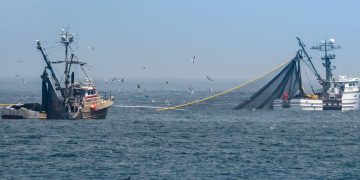

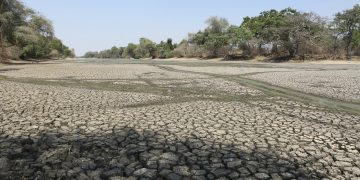



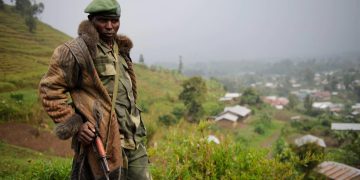






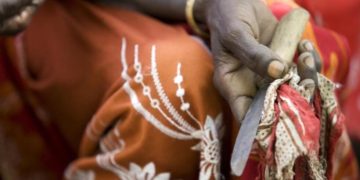

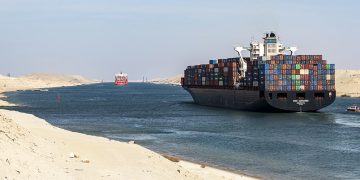




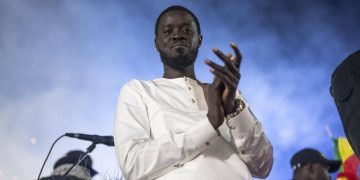
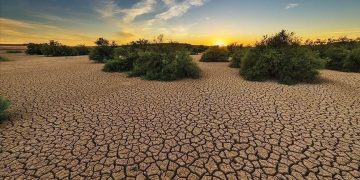


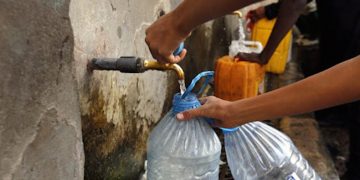
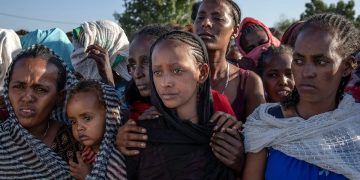

![[Editorial] 30 years later, is apartheid really over?](https://lejournaldelafrique.com/wp-content/uploads/2021/06/caricature-jda-apartheid-360x180.jpg)
![[Edito] Gabon and Commonwealth: the whims of Prince Ali](https://lejournaldelafrique.com/wp-content/uploads/2021/06/caricature-JDA-Bongo-360x180.jpg)
![[Editorial] Facebook and Twitter, more dictators than dictators?](https://lejournaldelafrique.com/wp-content/uploads/2021/06/Caricature-JDA-FB-TW-360x180.jpg)
![[Edito] Rwanda: for the French apologies, we will have to go back](https://lejournaldelafrique.com/wp-content/uploads/2021/05/Caricature-rwanda-JDA-360x180.jpg)
![[Edito] Guinea: Alpha Condé, the oppressed turned oppressor](https://lejournaldelafrique.com/wp-content/uploads/2021/05/Caricature-Alpha-Conde-360x180.jpg)
![[Edito] CFA Franc: a facelift cut to measure for France](https://lejournaldelafrique.com/wp-content/uploads/2021/05/Caricature-JDA-CFA-360x180.jpg)
![[Edito] Riyad Mahrez: One, two, three, viva l'Algérie!](https://lejournaldelafrique.com/wp-content/uploads/2021/05/caricature-Mahrez-360x180.jpg)
![[Edito] Niger: Mohamed Bazoum begins a delicate balancing act](https://lejournaldelafrique.com/wp-content/uploads/2021/04/image_6483441-1-360x180.jpg)
